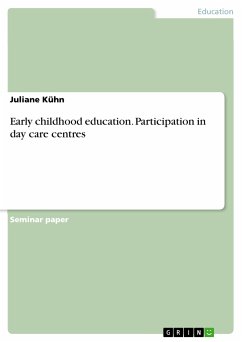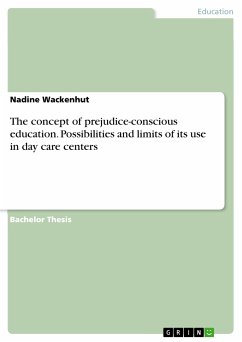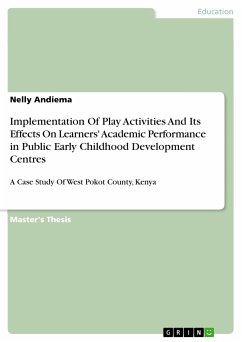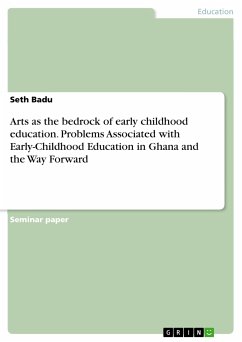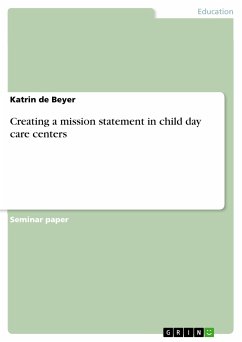Seminar paper from the year 2014 in the subject Pedagogy - Nursery Pedagogy, Early Childhood Education, grade: 1,0, http://www.uni-jena.de/ (Institut für Erziehungswissenschaft), course: Partizipation in der Sozialen Arbeit, language: English, abstract: Participation has become an increasingly relevant topic in politics and the media in recent years. In social institutions, there is more and more discussion on how addressees can be more involved in processes and how participation can be implemented in practice. In the field of early childhood education, children should be allowed to actively shape their environment and have a say in relevant decisions that affect their everyday lives. In this context, it is often discussed to what extent children are already competent enough to be able to actively participate or how large the scope for participation can be. Do they not lack the experience and foresight of adults? What can participation in day care centres look like and where are the limits? These questions will be addressed in this paper. First, the term 'participation' will be briefly defined and the legal basis will be described. Furthermore, the importance of participation for children will be explained. In the next chapter, the view of man, the basic approach and the dialogue skills of the professionals in day care centres will be described as requirements for successful participation. The main part of the work is devoted to methods and examples of participation in day care centres. In the summary and in the outlook, the limits of participation are discussed. The work is very practice-oriented and is intended to shed light on how participation can be implemented using the example of a day care centre. The aim of the work is to give an overview of the possibilities of participation in day care centres and to show why participation is so relevant for children.
Dieser Download kann aus rechtlichen Gründen nur mit Rechnungsadresse in A, B, BG, CY, CZ, D, DK, EW, E, FIN, F, GR, HR, H, IRL, I, LT, L, LR, M, NL, PL, P, R, S, SLO, SK ausgeliefert werden.

